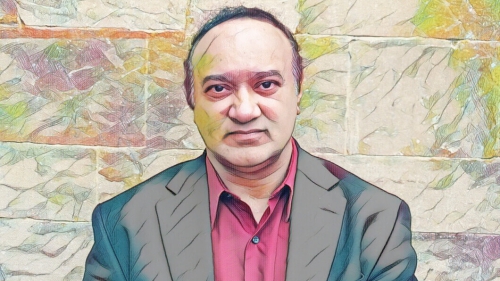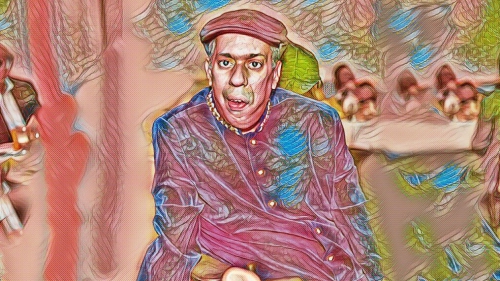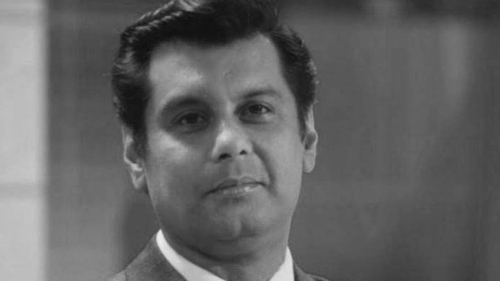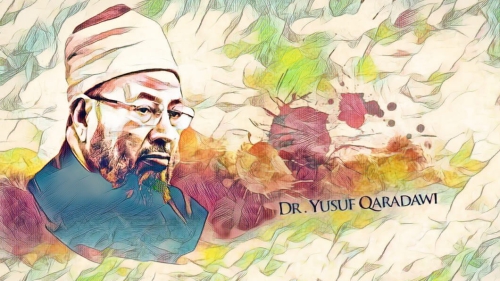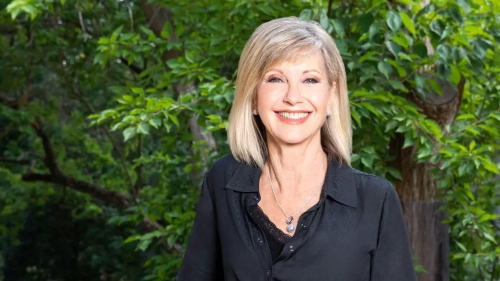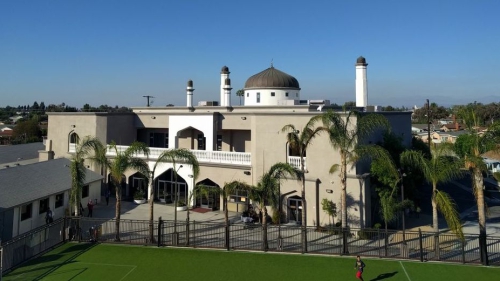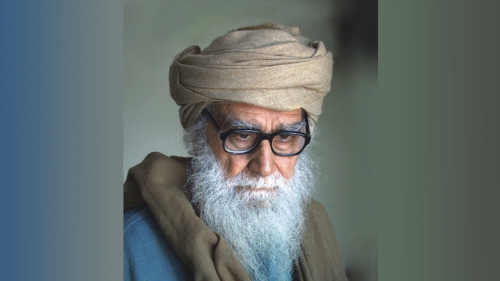Visionary and Father of Modern Islamic Banking Passes Away
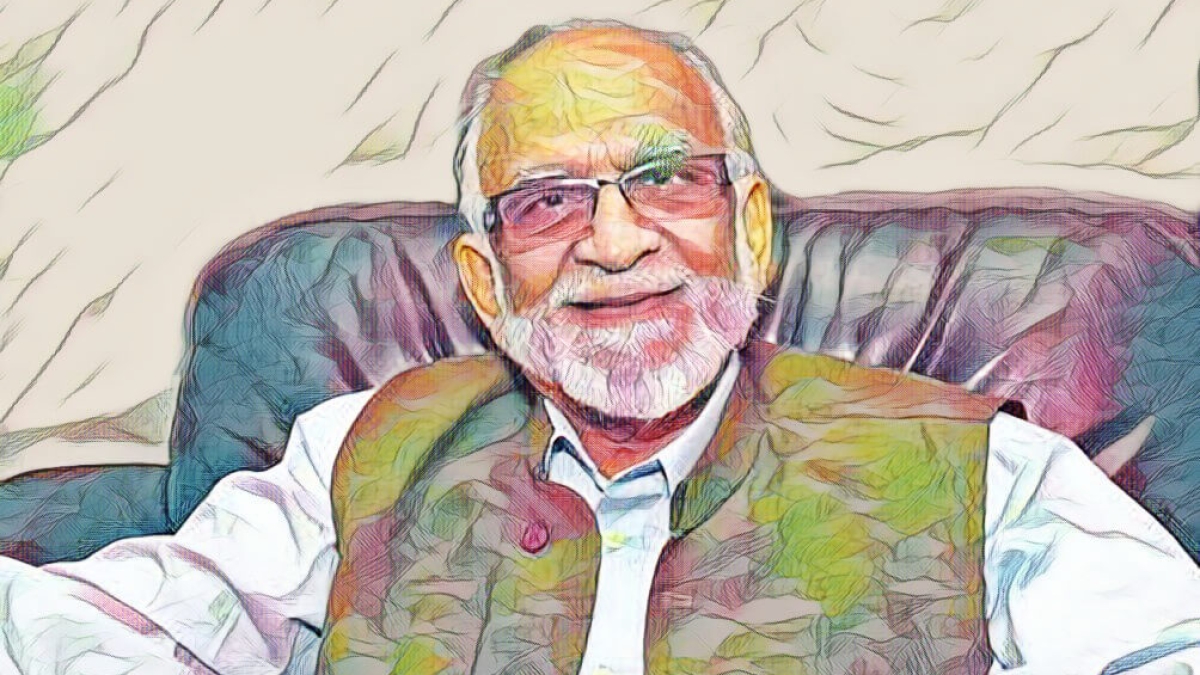
Millions of people around the world benefit from interest-free baking. But, not many know that the scholar who made it possible within the context of the modern economic system left this world for his final abode on November 11, 2022 in San Jose, some 8,000 miles away from a small village in Northern India, where he was born in Gorakhpur in 1931.
Dr. Muhammad Nejatullah Siddiqi left a legacy that will continue to help countless access interest-free loans to achieve their dreams. Nejat means salvation. Dr. Nijatullah's work proved salvation to people who could not advance their financial growth in the highly competitive world due to a lack of capital. Who would have thought that growing up in colonial India, Dr. Nejat would surpass the peak of academic excellence and achieve professorship in two of the world's most prestigious universities, the Muslim University of Aligarh and Kind Abdul Aziz University, Saudi Arabia. Indeed, education in British India was reluctant to open the door for an aspiring Muslim student to help develop the Islamic Development Bank, which has financed thousands of development projects worldwide.
But he did it with dedication, commitment, and desire to translate concepts into concrete programs to benefit people. He labored hard to author sixty-three significant books, hundreds of articles, and thousands of lectures worldwide while pioneering economics based on divine principles of justice and equity. His most widely read book is "Banking without interest," published in more than 30 editions between 1973 and 2022.
His other works in English include Recent Theories of Profit: A Critical Examination (1971); Economic Enterprise in Islam (1972); Muslim Economic Thinking (1981); Banking Without Interest (1983); Issues in Islamic banking: selected papers (1983); Partnership and profit-sharing in Islamic law (1985); Insurance in an Islamic Economy (1985); Teaching Economics in Islamic Perspective (1996); Role of State in Islamic Economy (1996); Dialogue in Islamic Economics (2002) and Islam's View on Property (1969). He received two major awards for his work: King Faisal International Prize for service to Islamic Studies and Shah Waliullah Award for his contribution to Islamic Economics.
Describing the future of Islamic Economics, he wrote in 2013 that the changing world would call for five strategic changes in approach: Family rather than the market as the starting point in economic analysis; Cooperation playing a more significant role in the economy, complementing competition; Debts playing a subsidiary rather than the dominant role in financial markets; Interest and interest-bearing instruments playing no part in money creation and monetary management; and, lastly, Maqasid based thinking supplanting analogical reasoning in Islamic economic jurisprudence. In what follows, I'd like to elaborate on these points to help you get in touch with these challenging propositions.
He wrote about his involvement in Islamic economics.
"I have been involved in Islamic economics most of my life. At school, however, I studied science subjects but switched to economics, Arabic, and English literature for my BA degree at Aligarh Muslim University (AMU), which I joined in 1949. My reading habits influenced my decision.
I was devoted to al-Hilal and al-Balagh magazines, published under Maulana Abul Kalam Azad (1888–1958), poet, critic, thinker, and one of the great leaders of the Independence Movement. I also read al-Tableegh and was influenced by the Deobandi scholar Maulana Ashraf Ali Thanawi (1863–1943), the author of the famous book on belief and correct conduct (for women), Heavenly Ornaments. And as most young people of my age and time, I studied the works of Maulana Abul Ala Maududi (1903–1979). Two of Maududi's pieces deeply impacted me: lectures at Nadwatul Ulama, Lucknow, and a scheme he proposed to Aligarh Muslim University, both in the mid-1940s, later published in a collection titled Taleemat.
Under the influence of these ulama – religious scholars – I abandoned science and the engineering career I had planned. Instead, I wanted to learn Arabic, gain direct access to Islamic sources, and discover how modern life and Islamic teachings interacted. I stuck to this mission, even though I had to take several detours stretching over six years – to Sanwi Darsgah e Jamaat e Islami, Rampur, and Madrasatul Islah in Saraimir before I arrived eventually at Aligarh to earn a Ph.D. in economics.
The years spent in Rampur and Saraimir were full of lively interaction with Ulama. We spent most of our time discussing the Qur'an, the traditions of the Prophet, commentaries on the Qur'an, fiqh (jurisprudence), and usul-e-fiqh, or principles of jurisprudence. That this happened in the company of young men my age, fired by the same zeal, was an added advantage. We had each chosen a subject – political science, philosophy, economics – that we thought would enhance our understanding of modern life. We combined modern secular and old-religious learning to produce something that would right what was wrong with the world. We received a warm welcome from Zakir Hussain (1897–1969), the former President of India, then Vice-Chancellor of Aligarh Muslim University; Mohammad Aaqil Saheb, Professor of Economics at Jamia Milliyah Islamia, Delhi; and by eminent teachers at Osmania University in Hyderabad.
Our mission was to introduce Islamic ideas to economics. These were at three levels:
* A background provided by Islam's worldview places economic matters in a holistic framework.
* A set of goals for individual behavior and monetary policy,
* Norms and values, resulting in appropriate institutions.Maududi argued that this exercise performed in critical social sciences would pave the way for progress toward an 'Islamic society. I was fully sold on the idea. We were also influenced by the extraordinary times through which Islam and Muslims were passing worldwide. Islam was 're-emerging' after three centuries of colonization which was preceded by another three centuries of stagnation and intellectual atrophy. The great depression had just exposed capitalism's darker side, and Russian-sponsored socialism was enlisting sympathizers. We thought Islam had a chance if only a convincing case could be made.
Dr. Nejatullah Siddiqi devoted an entire book to the Objectives of Shariah (Maqasid Shariah). He did not agree with those writers who insisted on the five categories of objectives mentioned by al-Ghazali, claiming that many other purposes come under them in one way or another. He suggested more goals to be added beside and beyond the five mentioned above, such as honor and dignity of humankind, fundamental freedom, justice and equity, poverty alleviation, sustenance for all, social equality, bridging the gap between the rich and the poor, peace and security, preservation of system, and cooperation at the world level. He supports his various verses of the Qur'an and the sayings of the Prophet, especially in dealing with the non-Muslims."
Dr. Siddiqi surveyed the history of the idea of Shariah objectives. To him, the concept of Shariah objectives has existed from the very beginning of Islamic history. But it was al-Juwayni (d. 478/1085) who first used the term, from whom his disciple al-Ghazali (d. 505/1111) took it and divided it into five categories: Protection of religion, life, reason, progeny, and property. Ibn Taymiyah (d. 728H/1328) introduced the protection of dignity in place of progeny. He also argued that objectives should not be limited to the protection from haram (forbidden) but should include securing benefits. Thus, the number would be unrestricted to five objectives. Ibn al-Qayyim followed the suit of his teacher, Ibn Taymiyah, and included justice among the objectives. He examined the opinions of al-Shatibi (d. 790/1389), Shah Wali Allah al- Dihlawi (d. 1172/1763), and a quick survey of the contemporary literature.
At 91, when he breathed his last in this mortal world surrounded by his three sons and two daughters, Dr. Nejat had already achieved what only a few chosen ones achieved. He ensured perpetual reward from his creator for his contributions to bringing millions into the fold of economic growth. As a result, marginalized people who lagged because of the lack of capital are in the process of building a stable financial life. Dr. Nejatullah turned concepts of divine justice and equity into practical reality. When he started his work on Islamic banking, there was hardly an institution applying religious principles; now, there are over 500 Islamic banks and thousands of other non-interest-bearing financial institutions. His legacy is there to stay and benefit people worldwide. His work has turned him into a legend, and the future generation would rightly call him the future of modern Islamic banking. His nephew, Dr. Ahmadullah Siddiq, Professor of Media Studies in Illinois, said, "It is not a loss of a family, but a loss of a generation that always looked at uncle Nejatullah as a shining source of inspiration."
ACADEMIC HONORS:
Awarded King Faisal International Prize for Islamic Studies, 1982.
American Finance House Award, 1993
Ph.D. in Economics from Aligarh Muslim University, India, 1966.
Arabic and Islamic learning from Rampur, India, 1954.
WORK EXPERIENCE:
Professor of Economics, King Abdulaziz University, Jeddah, Saudi Arabia, from October 1978 to the present.
Professor of Islamic Studies, Aligarh Muslim University, India, from 1977 to 1978. (On leave from AMU from 1978 to 1983)
Reader (Associate Professor) in Economics, Aligarh Muslim University, India, from 1975 to 1976.
Lecturer (Assistant Professor) in Economics, Aligarh Muslim University, India, from 1961 to 1974.
Supervised several Ph.D. dissertations at Aligarh University, Ummul Qura University, Makkah, Imam Saud University, Riyadh, and Sokoto University, Nigeria.
EDITORIAL AND ADVISORY POSITIONS:
Member, Editorial Board, Journal of King Abdulaziz University: Islamic Economics, Jeddah from 1983 to present.
Member International Board, Review of Islamic Economics, International Association of Islamic Economics, Leicester, U.K. from 1991 to present.
Member, Advisory Board, Islamic Economic Studies, Islamic Research, and Training Institute, Islamic Development Bank, Jeddah.
Member, Board of Trustees, AAOIFI (Accounting and Auditing Organization for Islamic Financial Institutions, Bahrain) 1999 -
Member, Editorial Board, IQTISAD Journal of Islamic Economics, Yogyakarta, Indonesia, 1999
Member, Advisory Editorial Board, The American Journal of Islamic Social Sciences, AMSS & IIIT, U.S.A. from 1985 to 1991.
Member, Advisory Board of the Journal, Humonomics, Toronto, Canada from 1985 to Present.
Member, Advisory Board, MASS, Journal of Islamic Sciences, Aligarh, India, from 1985 to 1997.
Editor, Islamic Thought, Aligarh, 1954-1959.
LIST OF PUBLISHED BOOKS
ENGLISH:
1. Economics, an Islamic Approach, The Islamic Foundation, Leicester, U.K. 1999
2. Teaching Economics in Islamic Perspective, Centre for Research in Islamic Economics, KAAU, Jeddah, 1996
3. Role of the State in the Economy, The Islamic Foundation, Leicester, U.K, 1996
4. Insurance in an Islamic Economy, The Islamic Foundation, Leicester, U.K. 1985
5. Partnership and Profit-Sharing in Islamic Law. The Islamic Foundation, Leicester, U.K. 1985
6. Banking Without Interest, The Islamic Foundation, Leicester, U.K. 1983
7. Issues in Islamic Banking. The Islamic Foundation, Leicester, U.K. 1983
8. Muslim Economic Thinking. The Islamic Foundation, Leicester, U.K. 1981
9. Contemporary Literature on Islamic Economics, The Islamic Foundation, Leicester, U.K. 1978
10. Economic Enterprise in Islam, Markazi Maktaba Islami, Delhi, India. 1972
11. Some Aspects of the Islamic Economy, Markazi Maktaba Islami, Delhi, India. 1972
12. Muslim Personal Law (Edited), Markazi Maktaba Islami, Delhi, India. 1972
13. Recent Theories of Profit: A Critical Examination. Asia Publishing House, Bombay, India. 1971
N.B: Some of these books have also been published in Arabic, Persian, Turkish, Indonesian, Malay, Hindi, and Bengali languages.
URDU:
1. Tahreek Islami Asr Hazir Men (Contemporary Islamic Movement). 1995 Markazi Maktaba Islami, Delhi, India.
2. Quran awr Science (Excerpts from Syed Qutb's Tafsir with a detailed Introduction). 1978 Markazi Maktaba Islami, Delhi, India.
3. Nash'at Saniyah Ki Rah (Towards Islamic Renaissance) 1974 Markazi Maktaba Islami, Delhi, India.
4. Insurance Islami Ma'ishat Men (Insurance in Islamic Economy). 1974 Markazi Maktaba Islami, Delhi, India.
5. Ghair Sudi Bank Kari (Interest Free Banking) 1969 Markazi Maktaba Islami, Delhi, India.
6. Shirkat awr Mudarabat Ke Shar'i Usul (Sharia Principles of Partnership and Profit-Sharing). 1969 Markazi Maktaba Islami, Delhi, India.
7. Islam Ka Nazarriyah Milkiyat (2 Vols.) (Islam's Theory of Property). 1969 Islamic Publications, Lahore, Pakistan.
8. Islam Ka Nizam-e-Mahasil (Translation of Abu Yusuf's Kitab al Kharaj).1966 Islamic Publications, Lahore, Pakistan.
9. Islam Men `Adl-e-Ijtimat'i (Translation of Syed Qutb's al `Adalah al Ijtimaiyah fi'l Islam). 1963 Islamic Publications, Lahore, Pakistan.
10. Islami Adab (edited) (Islami Literature) 1960 Markazi Maktaba Islami, Delhi, India.







